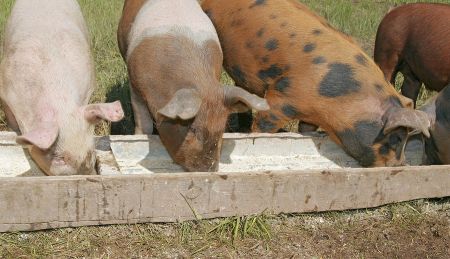So, are you a tax collector or a sinner? I know you don’t want to be one of the scribes or Pharisees, but those are all the people in the audience today. And you definitely want to be here when Jesus starts telling stories.
Turnaround stories. Repentance stories.
The King James Version calls a tax collector a “publican,” which sounds vaguely British, like a friendly chap who runs a family pub. But two thousand years ago it meant someone who took your money and gave it to Caesar. Not a popular guy. Right up there with a sinner.
And these really are sinners, make no mistake. “Notorious and especially wicked” (AMP), they’re “outcasts” (GNT), flat out “bad people” (WE).
Maybe so, but they’ve come to hear Jesus. I like them already.
Now the tax collectors and “sinners” were all gathering around to hear him. Luke 15:1
They aren’t looking for a handout or a healing. Aren’t even trying to nab his autograph. They’ve come to absorb his teaching. To experience his love and grace in person.
But… Luke 15:2
But what, we wonder? Why stop now?
Luke wants to be sure we don’t miss what’s unfolding here. While we’re watching supposedly bad people do a good thing, some supposedly good people are about to do a bad thing.
…the Pharisees and the teachers of the law muttered… Luke 15:2
We know these guys: the teachers of the Law of Moses, also called “scribes” (ESV). And the Pharisees? They’re the ones who make sure the Law is kept.
They really should be the Good Guys of the Bible. But they’re too busy “grumbling” (CEV), “complaining” (AMP), and “whispering among themselves” (NIRV).

“This man welcomes sinners and eats with them.” Luke 15:2
The food isn’t the problem. It’s the fact that Jesus is hanging out with these undesirables, extending friendship to them, and yes, breaking bread with them.
Right now, though, he’s telling stories. Parables, if you prefer. We’ll jump over the first two—The Lost Sheep and The Lost Coin—and go straight to the one that perfectly demonstrates this week’s theme: Embrace Repentance.
There was a man who had two sons. Luke 15:11
One sentence, and we already spy trouble on the horizon. Two sons in the Bible? Oh brother. Cain and Abel. Jacob and Esau. We’ve seen this movie.
The younger one said to his father,… Luke 15:12
No surprise there. Younger siblings always make the best rebels.
“Father, give me my share of the estate.” Luke 15:12
I can almost hear the father sighing. He knows this boy, knows he is going to waste every penny of his money.
Everything about this son’s words reveals his less-than-admirable character traits. He’s demanding, greedy, selfish, and impatient: “Give me now the part of your property that I am supposed to receive someday” (ERV).
Personally, I love Eugene Peterson’s take: “Father, I want right now what’s coming to me” (MSG). He’s going to get what’s coming to him, all right!
Alas, the father knows this son will only grow up when he falls down.
We hear no arguments, no slamming doors, just a parent who must do the hardest thing of all: let go.

So he divided his property between them. Luke 15:12
This was “his wealth” (ERV), “his assets” (NET), “his living” (ASV), not his spare change. In fact, the father “divided all he had between the two sons” (WE).
One word comes to mind: sacrifice. The Father may not be named in this story, but we know Who he is.
Not long after that,… Luke 15:13
Don’t you know this son is wasting zero time? “A few days later” (NLT), he has itchy feet. “As soon as he could convert his share into cash” (CJB), he is gone, gone, gone.
…the younger son got together all he had,… Luke 15:13
And he had a lot, because he had a generous father. Even so, the young man “packed up everything he owned” (CEV), apparently with little thought of returning.
…set off for a distant country… Luke 15:13
Uh-oh. This can’t be good. Not this “foreign land” (PHILLIPS), this “far country” (ESV). Some of us (my hand is up) have spent a long time in the far country. It’s not a happy place, but it can look that way from a distance.
…and there squandered his wealth in wild living. Luke 15:13
Squandered is right. He “wasted everything he had” (GW), “living like a fool” (ERV). Been, been, been there. Born to be “wild” (NLV), and all that.

When I began speaking for Women of Faith some years ago, the speakers gathered to discuss our messages and see how they might all fit together. We were encouraged to begin with a strong opening line, at which I brightened and said, “Great! I know just what I’ll say: ‘I once slept with three men in one night.’”
Girlfriend, the looks on their faces!
Then and now, I don’t say such a thing to shock you; I say it to show you that God can choose anyone, and God can use anyone.
Thirty-some years ago, when I was living and dying in the far country, no one would have said, “Now, that girl will be teaching the Bible someday.” No way.
You wouldn’t have pictured it. I couldn’t have imagined it. Yet God already planned it.
He knows the end of our stories, beloved, and he isn’t finished writing yours.
After he had spent everything,… Luke 15:14
Just as we feared, the prodigal son has “used up his resources” (CEB), and has “nothing left” (GW). That’s the far country for you. Drains. You. Dry.
…there was a severe famine in that whole country,… Luke 15:14
We’re talking “a mighty famine” (ASV), with “no food anywhere” (NCV). Oh dear. That would get this girl’s attention for certain.
…and he began to be in need. Luke 15:14
Actually, he’s been in need all along, but only now is he starting to realize it, “to feel the pinch” (CJB). He hasn’t hit bottom yet, but he can see it from here.

So he went and hired himself out to a citizen of that country, who sent him to his fields to feed pigs. Luke 15:15
He isn’t simply working for the guy, “he attached himself” (CJB), downright “glued himself” (AMP). When we get desperate enough, we will take a handout from anyone, do anything we have to do, just to keep our chins above water.
See the sinners in Jesus’ audience, nodding their heads? They get this. They’ve done this. They feel for this young man.
The scribes and Pharisees, meanwhile, are shaking their heads. Not only have they never been there, they wouldn’t even think of making the trip. Their compassion for the young man is nil. Serves him right.
We dare not think that way, beloved.
He longed to fill his stomach with the pods that the pigs were eating,… Luke 15:16
Yuck. Doesn’t look very appetizing. Nothing but “husks” (ASV) and “bean pods” (GNT). Yet he’s “so hungry he would have eaten the corncobs in the pig slop” (MSG).
Won’t anyone come to his rescue?
…but no one gave him anything. Luke 15:16
Hard to watch, isn’t it? Every parent of a prodigal knows the agony of seeing a grown child make one bad move after another, digging themselves deeper and deeper into a pit.
A pig pen? It doesn’t get much worse than that. It’s time, Lord. Help him, please.
When he came to his senses,… Luke 15:17
Finally.
His senses literally spring to life. (I’ve always wondered if his sense of smell kicked in first. Pigs? How did I end up here?)
Once “he came to himself” (ESV), our prodigal “realized what he was doing” (NCV), and “began to think clearly again” (NIRV).
…he said, “How many of my father’s hired men have food to spare, and here I am starving to death!” Luke 15:17
As the fog lifts, his first thoughts are of home. And of his father. If you are the parent of a prodigal, be encouraged: your son or daughter has not forgotten you.
This young man knows what must be done. We hear no hesitancy in his voice. Only conviction.
“I will set out and go back to my father…” Luke 15:18
He is looking homeward as he declares, “I will arise” (DRA), “I’ll go at once” (GW), “I’m going back” (MSG). Though the word repent isn’t in this story, we hear it running in the background, like a soundtrack for a movie. Repent, repent, repent.
Now he begins practicing his homecoming speech.
…and say to him: “Father, I have sinned against heaven and against you.” Luke 15:18
Bless him. He is humbled in his lowly circumstances, humbled in his flesh, and humbled in spirit. He knows he is a sinner now.
“I am no longer worthy to be called your son…” Luke 15:19
I’ve said those words. Perhaps you have too. Lord, I’m not worthy to be your child. Yet he calls us his children. Undeniably. Absolutely. “How great is the love the Father has lavished on us that we should be called children of God! And that is what we are!” (1 John 3:1)
I can change my name, dye my hair, move to the other side world, but I’ll still always be the daughter of Curt and Betty. Always.
Even so, the prodigal son is willing to be less than a son now.
“…make me like one of your hired men.” Luke 15:19
Our mouths hang open in wonder, watching this Bad Boy become a hero, right in front of our eyes. Not because he’s big and strong, but because he’s humble and weak.

So he got up and went to his father… Luke 15:20
He’s a man of his word now. He said he would go and he is.
It’s a long road home, made especially hard when his hands are empty, and his stomach is growling, and he is wondering what kind of reception he might find.
But while he was still a long way off, his father saw him…Luke 15:20
Oh, Lord. You always knew he’d come home.
“He was still at a distance” (GW), yet the father caught sight of him. No wonder: he never took his eyes off him! He’s been watching that road since the day his son left.
…and was filled with compassion for him; Luke 15:20
No anger, no judgment, only grace. He is “moved with pity” (AMP), he is “stirred by mercy” (WYC), and he is “filled with tender love for his son” (NIRV).
Jesus is telling this story, hoping we will get the Big Picture. If we want to know how our heavenly Father will treat us when we turn back to him, this is it. This is what repentance looks like. And this is what forgiveness looks like.
…he ran to his son,… Luke 15:20
I can never read those words without tearing up. Love, on the run.
I don’t think the son is running, though. No, I think he’s trudging with his head down, dreading seeing the disappointment in his father’s face.
Then he hears the sound of feet, pounding against the hard ground, and looks up in time to see the love shining in his father’s eyes before he’s enveloped in the man’s embrace.
…[he] threw his arms around him… Luke 15:20
The father’s strong arms are wrapped around his emaciated son’s body and he is hugging him for all he’s worth. Since we had no mention of a shower, we can only assume this grown boy has piggy bits stuck to his clothes.
Does the father mind? He does not.
I’ve asked parents of prodigals if their son or daughter returned home smelling of cigarettes and whiskey and who knows what, would they still throw their arms around that child? They would, without a moment’s hesitation.
…and kissed him. Luke 15:20
This isn’t a sign of affection; it’s a stamp of approval. This is my son. This one. Mine.
What has the son done? Turned toward home. That’s it. He repented.
What has the father done? Everything. He saw, he loved, he ran, he embraced, he kissed. He let his son go and welcomed him home, without a harsh word or any mention of punishment.
Notice the son hasn’t spoken yet. Hasn’t said his little speech, hasn’t asked for forgiveness. But has he demonstrated repentance? Yes, indeed.
Now come the words, which the son needs to say and the father needs to hear.
The son said to him, “Father, I have sinned against heaven and against you. I am no longer worthy to be called your son.” Luke 15:21
Just like he practiced it, word for word.
Has his father already extended forgiveness? Yes. But saying the words is important for both of them. It’s why we confess our sins, even though God already knows what we’ve done and what we are going to say.
Even so, this father cannot wait to bless his child.
But the father said to his servants, “Quick! Bring the best robe and put it on him.” Luke 15:22
Whether it’s the father’s own garment, “or a ceremonial robe for an honored guest” (EXB), it’s the “finest robe in the house” (NLT).
And he’s not done yet.
“Put a ring on his finger and sandals on his feet.” Luke 15:22
That’s “the family ring” (MSG), so no one will doubt his “sonship and authority” (EXB). And the footwear? Well, servants go barefoot—sons wear sandals.
“Bring the fattened calf and kill it. Let’s have a feast and celebrate.” Luke 15:23
This young man didn’t go from feast to famine—he went from famine to feast! Though the mother in me worries about him eating too much too soon, the father has good cause to celebrate.
“For this son of mine was dead and is alive again; he was lost and is found.” Luke 15:20
All that matters is he’s home.
That’s what our heavenly Father wants for us as well. Come home, dear sister. Wherever you’ve been, whatever you’ve done, “Repent and believe the good news!” (Mark 1:15)
Now, it’s your turn:
Time for another true confession from your Lizzie: it’s four o’clock in the morning. My eyes are crossed and my fingers are stiff from too many hours at the keyboard. But I cannot bear to be late again with this week’s blog, and wanted to be sure to post it before sunrise.
Rather than me expanding on the questions below, might you answer one? If you’re reading this via email, simply click on the Embrace Grace Bible Study headline, and it will take you directly to my website, where you can Post a Comment at the bottom of my teaching. Thanks so much for your willingness to add your voice to mine.
Now, here are this week’s questions from Embrace Grace:
-
Has the Lord revealed to you an aspect of your life that might require a change of heart or a shift in direction? If so, how will you respond?
-
If you struggle with the need to be perfect, what makes it difficult for you to accept God’s grace—and your imperfection?
-
What would true peace look like in your life?
Bless you for taking time to share a bit of your story. I count it a blessing to encourage you at any hour!
Your sister, Liz


